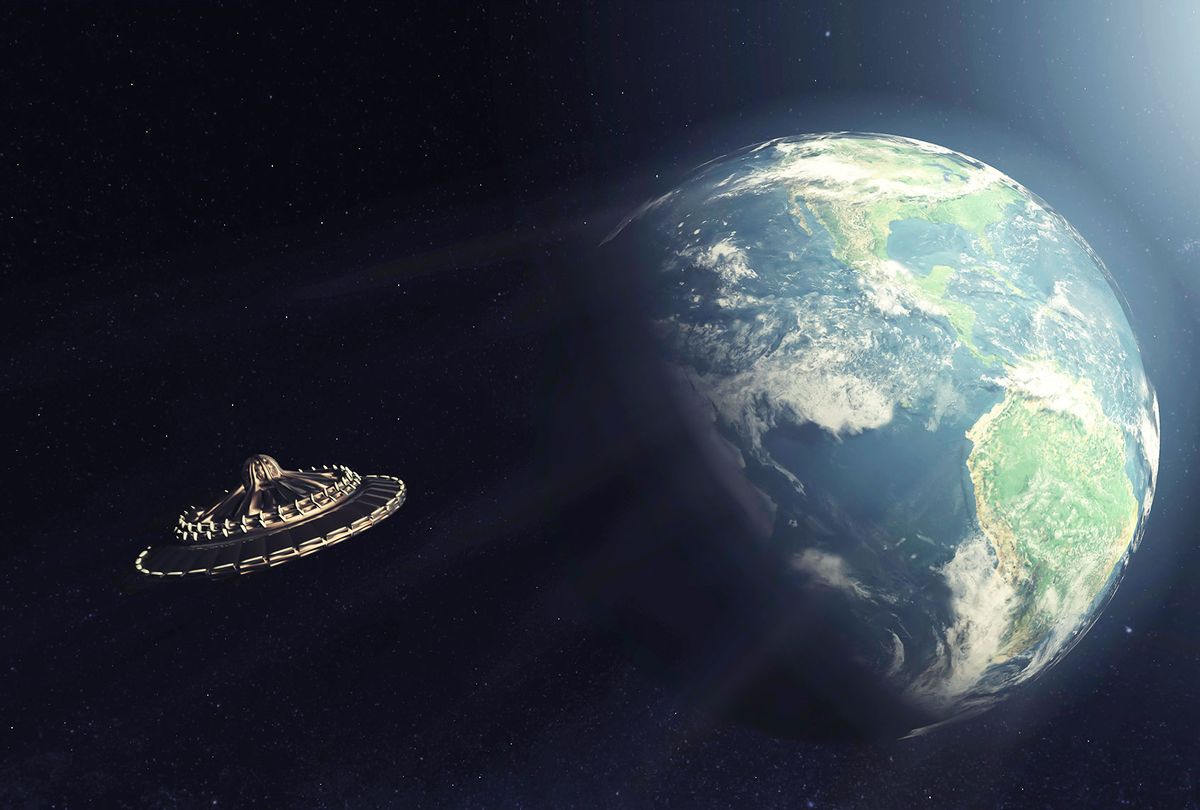Months before he died, former Senate Majority Leader Harry Reid (D-Nev.) famously told the world that the Pentagon had denied him access to materials which had supposedly been recovered from an unidentified flying object (UFO). Reid's story, though unusual in coming from a powerful American politician, nevertheless feels rote: There have been a number of public UFO sightings confirmed by the Pentagon itself, and as recently as last month the Navy admitted it had UFO videos that it would not release on the grounds that doing so would "harm national security."
Yet given the growing public clamor (and congressional clamor, for that matter) for information about UFOs, NASA felt compelled to provide the public with some answers. Consequently on Monday the federal agency launched a new study with 16 members for the purpose of determining the best way for NASA to further study what the scientists refer to as "UAPs" (unidentified aerial phenomena). They will not seek to determine exactly what they are, however.
So what is the panel actually doing? So far, they're a bit mum on the matter. When Salon reached out to several of the panel members for comment, an account representing Scott Kelly told Salon that "I would be happy to talk to you once we have something to report. Follow up with me towards the end of the study." When asked, Kelly replied that it would be in May.
Want more health and science stories in your inbox? Subscribe to Salon's weekly newsletter The Vulgar Scientist.
Salon also reached out to a scientist who is critical of the new panel: Harvard theoretical physicist Dr. Avi Loeb, who studies cosmology and astrophysics. He told Salon that, although he had recommended NASA establish a committee of this nature in June 2021, he was told that he could not be part of it because he is also studying UAPs through his own organization The Galileo Project. The Galileo Project hopes to report preliminary results from its "new suite of instruments" by summer 2023, by which time the NASA study report will have determined whether or not to recommend funding for additional study.
"We will be collecting and analyzing new data while the committee is trying to assess whether NASA should fund the collection and analysis of such data," Loeb noted. He also pointed out that the NASA panel, according to his understanding, will look at all of the unclassified data about UAPs.
"The NASA panel will examine only unclassified data that we are already familiar with," Loeb wrote to Salon. "Most of the interesting data from the past is classified. Interesting data from the future year will be collected by the Galileo Project."
Notably, Loeb is not a die-hard believer in the mould of Fox Mulder: the esteemed physicist was critical of reports of Ukrainian UFOs as being of alien origin, and wrote a detailed scientific examination which arrived at the conclusion that such oft-sighted objects over Ukraine were almost certainly man-made.
Because of videos like those released by the Pentagon, no credible observer can deny that there are unidentified flying objects.
When asked if the new panel would be open to the possibility that UFOs/UAPs are extraterrestrial in origin, Loeb expressed skepticism.
"Some members of the panel expressed explicit views against scientific research on UAP," Loeb told Salon. "Their selection raises concern about the neutrality of the panel."
Loeb's concerns speak to a deeper rift in the scientific community. Because of UAP videos like those released by the Pentagon, no credible observer can deny that there are unidentified flying objects, some of which (like the interstellar object CNEOS 2014-01-08) actually landed on Earth. Yet for every scientist like Loeb who argues that alien intelligence should be considered as a possible explanation, there are other scientists who dismiss any such proposal as fantastical. One of them, astrophysicist and science writer Dr. Ethan Siegel, criticized Loeb's work to Salon in August when discussing Loeb's expedition to retrieve pieces of CNEOS 2014-01-08 to figure out what it could be.
"[Loeb's] alien technology hypothesis is so far-fetched that there is no scientific reason to consider this as anything other than someone with no evidence crying wolf when there is no wolf that we have ever seen before," Siegel told Salon. "Saying that it is alien technology, to me, is an absolute travesty for the hundreds upon hundreds of legitimate solar system scientists who are doing excellent work studying what actually exists."
Siegel argued that there are more credible hypotheses, such as that "this is an object that came from our solar system that, with a poorly measured impact velocity, simply came from our solar system like everything else that hits Earth from space"; or, that "this is one of many, many, many interstellar objects that we know need to be out there that pass through our solar system, and this one happened to strike Earth and it, again, would be a naturally occurring small object."
For now, we will have to wait until May to see if NASA's curious panel takes a similarly dismissive view of such phenomena.

Shares